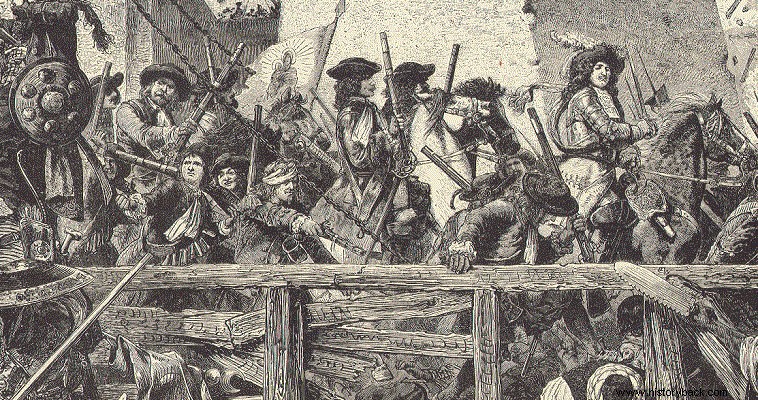
The battle near the Abbey of St. Gotthard, which took place on August 1, 1664, is one of the most glorious, but also the most unknown, decisive battles in history, the result of which stopped the Turkish advance in western Europe. Of course, Greeks also participated in this battle, in the ranks of the Christian army.
In 1664 a huge Turkish army of more than 150,000 men under the Grand Vizier Ahmet Fazil Kioprulu once again invaded Austrian-occupied Hungary with the intention of besieging Vienna. The Turkish army fielded 30,000 janissaries, 30,000 heavy cavalry, 30,000 disorderly light cavalry, 60,000 disorderly infantry and 360 guns.
Against this enormous force, the Austrians managed to assemble a European army composed of Austrians, Germans, Hungarians, French, and even Greeks. In particular, the Austrians sent 5,000 infantry, 6,000 cavalry and 10 guns, under Marshal Raimondo Montecucoli, the German imperial forces sent 6,000 infantry, 1,200 cavalry and 14 guns, under Leopold Wilhelm of Baden, the Palatinate sent 600 infantry and 300 cavalry the French sent 3,500 infantry and 1,750 cavalry.
Finally, there were also 2,000 light horsemen (the so-called "Croats"), an Italian infantry battalion from Piedmont, and some disorderly skirmishers (Panduroi). The small Christian army took up positions behind the Raab River and awaited the Turks, who were outnumbered about 10:1. The Turks attacked, supported by their artillery and pushed back their opponents, succeeding in creating a bridgehead. Where all seemed lost, Montecucoli reorganized his army and counterattacked against the hitherto victorious Turks.
The surprise was complete and the Turks were trapped between the Christian army and the river and their divisions that had crossed the river – about 30,000 men – were dispersed. The light cavalry played an important role in the battle. After this calamity, although their army was still overwhelmingly superior to the opponent, with no more morale, they retreated in humiliation.
